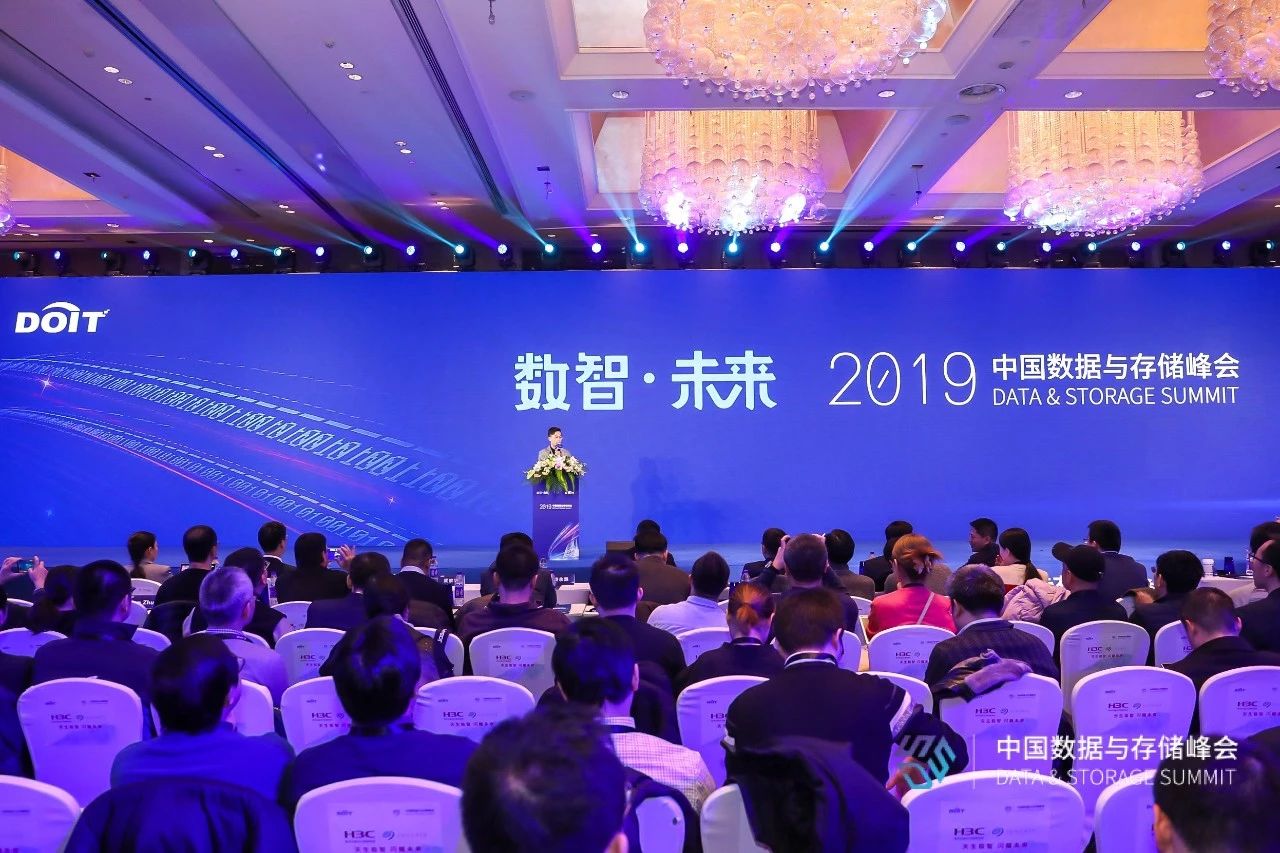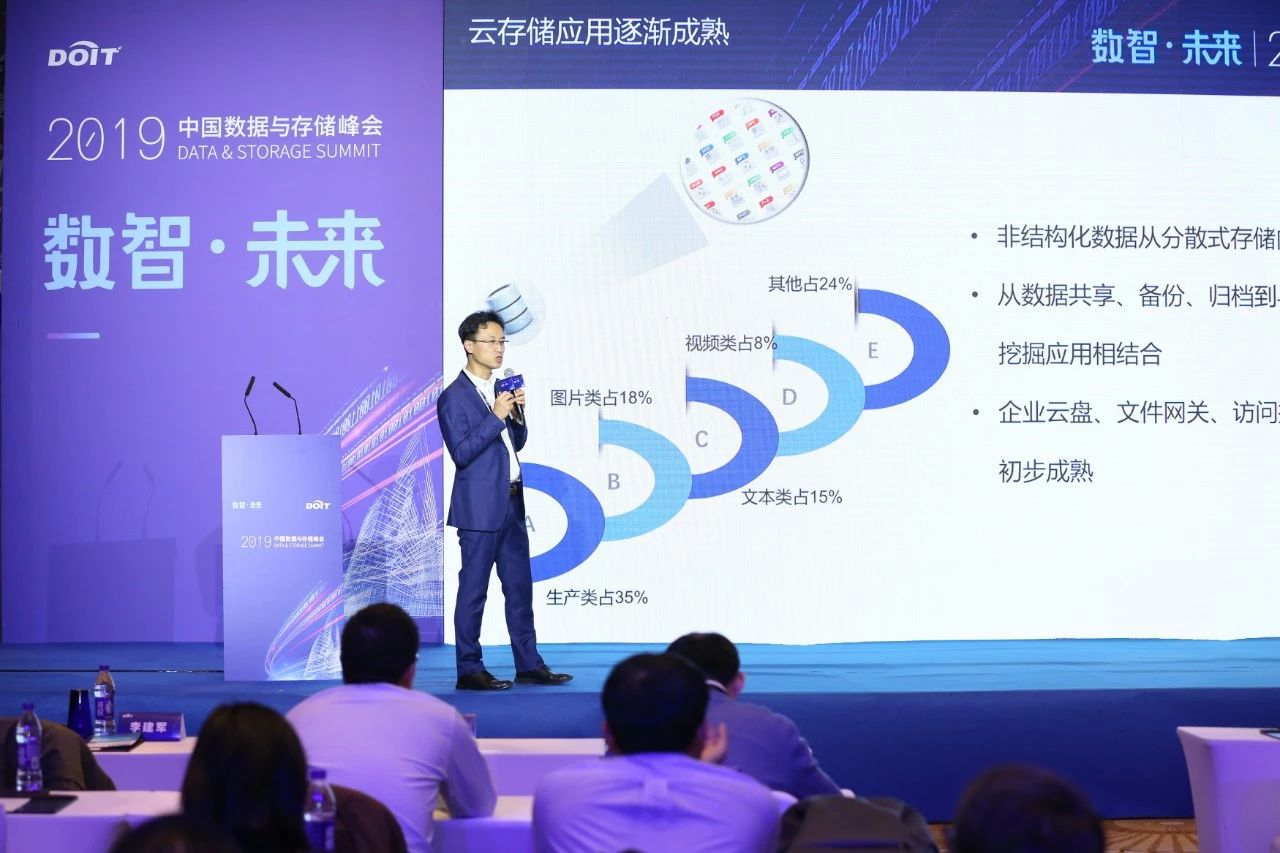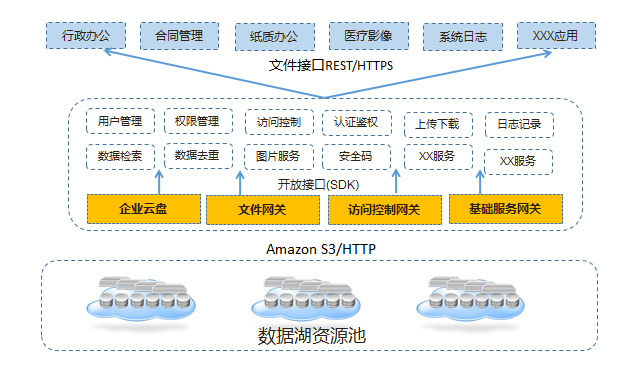On December 3rd and 4th, the 2019 China Data and Storage Summit, hosted by DOIT, took place in Beijing. Experts at the summit actively discussed the trends of new-generation key storage technologies and innovative data applications. There was a consensus that data intelligence will become a key driving force for the development of the digital industry, propelling the digital transformation of China and enterprises.

The summit included a main forum, a CIO peak dialogue, and ten major thematic forums on big data, flash storage systems, distributed storage, secondary storage and disaster recovery, hyper-converged and cloud storage, artificial intelligence, data innovation and security control, container innovation and application, and SCM fifth-generation storage and flash controllers. It attracted approximately 2,000 attendees from government, enterprises, industry, academia, research, and media, with over 100,000 viewers watching the live stream online.
The new generation full-stack cloud management service provider Futong Cloud was invited to the summit, where Futong Cloud's Cloud Storage Product Director, Li Jianjun, delivered a speech on the theme of "The Way of Practice in Unstructured Data Management" at the Hyper-Converged and Cloud Storage Forum.

The Path of Practice in Unstructured Data Management
In recent years, data generated across various industries has shown an explosive growth trend, presenting new challenges for data processing and data storage in the era of data explosion. According to statistics, structured data currently accounts for only 20% of the total data volume, while the remaining 80% consists of unstructured and semi-structured data in the form of files. Managing this 80% of data well is a key part of building a collaborative ecosystem for enterprises.
The Path to Structuring Unstructured Data in Cloud Storage Applications
Against the backdrop of digital transformation, as the demand for unstructured data management in enterprises continues to grow, the application of enterprise cloud storage is gradually maturing.
On one hand, unstructured data is evolving from decentralized storage to centralized storage; from data sharing, backup, and archiving to integration with data identification, retrieval, analysis, and mining applications; enterprise cloud drives, file gateways, access control gateways, and object-based services are becoming preliminarily mature.
On the other hand, influenced by various factors such as national policies and regulations on data protection, business transformation requirements, industry regulatory standards, security and compliance requirements, cross-border data regulation compliance, user experience, and advancements in cloud storage networks and AI technology, the development of cloud storage applications continues to innovate.
After discussing the development trends of cloud storage applications, Li Jianjun shared Futong Cloud's insights on the management of unstructured data based on its business practices, stating that "there is no one-size-fits-all technology for managing unstructured data; the most universal technology for managing unstructured data is cloud storage, and the way of cloud storage applications is to structure unstructured data."
Li Jianjun explained that there are many types of unstructured data, including document, image, audio and video, production-specific, and more. Different technologies correspond to the storage, management, and analysis of each type of data, making it challenging to manage them uniformly. With the continuous development of cloud storage technology, cloud storage has become a common method for managing unstructured data. Above and beyond storage, a trend in managing cloud storage applications is to transform unstructured data into structured data through identification, extraction, and parsing methods.
Cloud Storage Application Challenge: The Dilemma of Massive Data Management
Unstructured data holds specific and ongoing value for businesses, a value that is amplified during processes such as sharing, retrieval, and analysis. As a result, companies are increasingly investing in the cloud storage market each year.
As cloud storage applications continue to evolve, they also face a number of challenges, including how to manage massive amounts of data, ensuring the security of data transmission and storage, addressing the large-scale data access brought about by the growth of massive data, supporting the continuous innovation of business models, and effectively reducing corporate investment in the management of unstructured data, among others.
Li Jianjun introduced that in recent years, the data generated by enterprises has increased explosively, and the data is interwoven, with some enterprises facing the challenge of managing data at the billion-level. How to deal with this is a significant challenge. Facing the massive amount of unstructured data, Futong Cloud's cloud storage products can currently handle data management at the level of billions, helping enterprises better solve the dilemma of data management. At the same time, data security is the cornerstone. Futong Cloud's cloud storage ensures the security of transmission and storage through standard data encryption, transmission encryption, and access control methods. Additionally, in response to the issue of large-scale access from multiple ends such as PC and mobile for cloud storage applications, Futong Cloud can also handle access requirements at the level of tens of millions.
Cloud Storage Application Scenario: Cloud Storage Gateway
After analyzing the development trends, current status, and challenges of cloud storage applications, Li Jianjun introduced the current scenarios of cloud storage applications, which mainly include sharing, backup, archiving, access control, and data migration. Based on these application scenarios, Futong Cloud proposes the architecture for cloud storage applications – data as a service, as shown in the figure below:

The sharing scenario corresponds to enterprise cloud drives, which solve the biggest problem of file data sharing. Currently, cloud drives have a relatively high level of market maturity. Li Jianjun stated that enterprise cloud drives should become tool-oriented services, aligning more with tooling and the storage layer. This service can be used for data sharing and backup, rather than being a standalone application.
Li Jianjun introduced that the cloud storage gateway is currently a popular scenario, and Futong Cloud mainly focuses on FTP gateways, NAS gateways, and access control gateways. The FTP gateway can be deployed without changing the customer's application, offering superior performance that can be scaled horizontally, convenient maintenance for redeployment at any time, and stable reliability with cluster support; the NAS gateway is easy to use with direct space mounting, boasting strong performance of 500MB/s read and 300MB/s write, convenient maintenance for redeployment at any time, and stable reliability with High Availability (HA) support; the access control gateway provides fine-grained control over file data streams, anti-leech and operation tracing to enhance the security of application access to object storage.
Conclusion
Futong Cloud has always insisted on combining a multitude of user demand scenarios to continuously innovate products and technology, providing users with a better service experience. Currently, Futong Cloud's cloud storage products have been widely applied in the financial, manufacturing, and research institutions sectors, effectively addressing issues such as data storage, sharing, collaboration, data migration, cross-application full-text search, and data access control, making enterprise operations smoother and more efficient.







